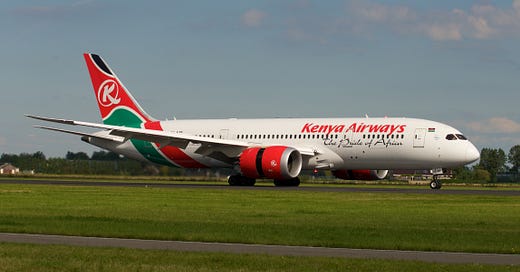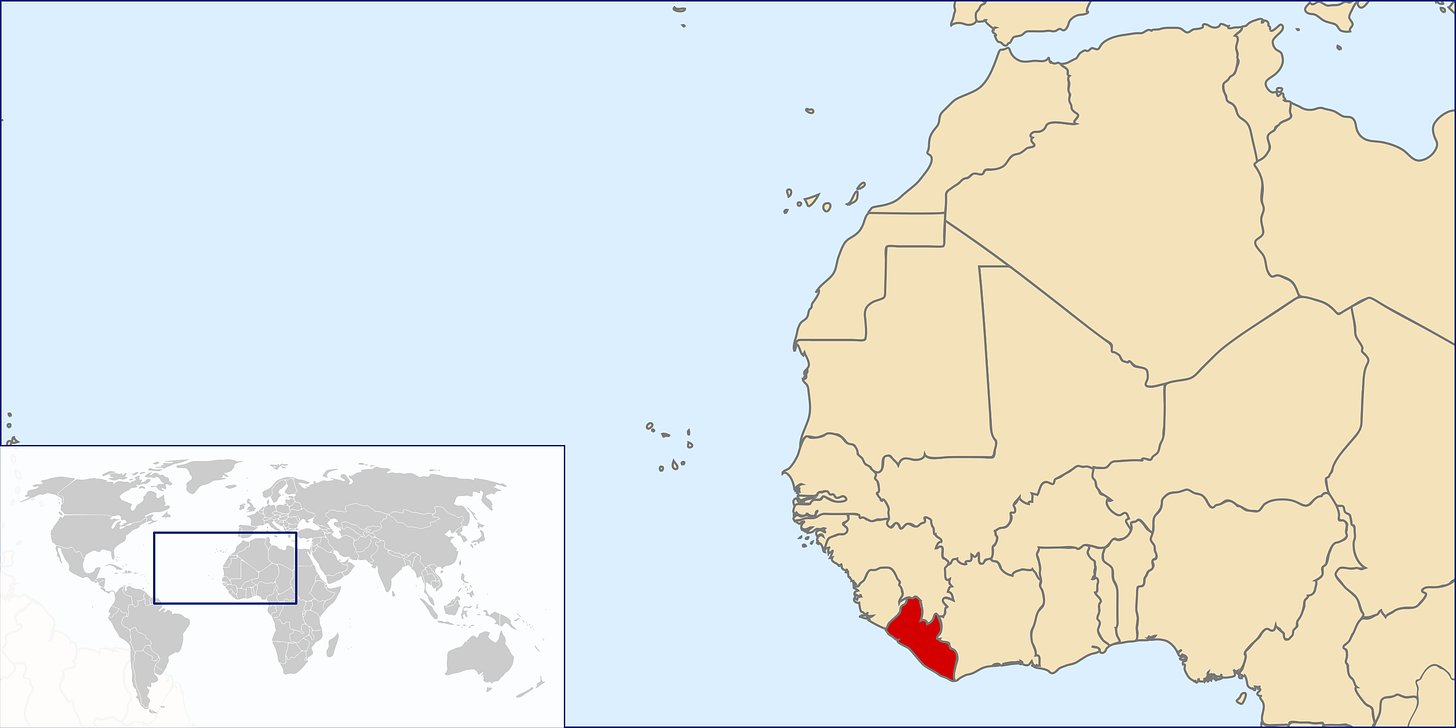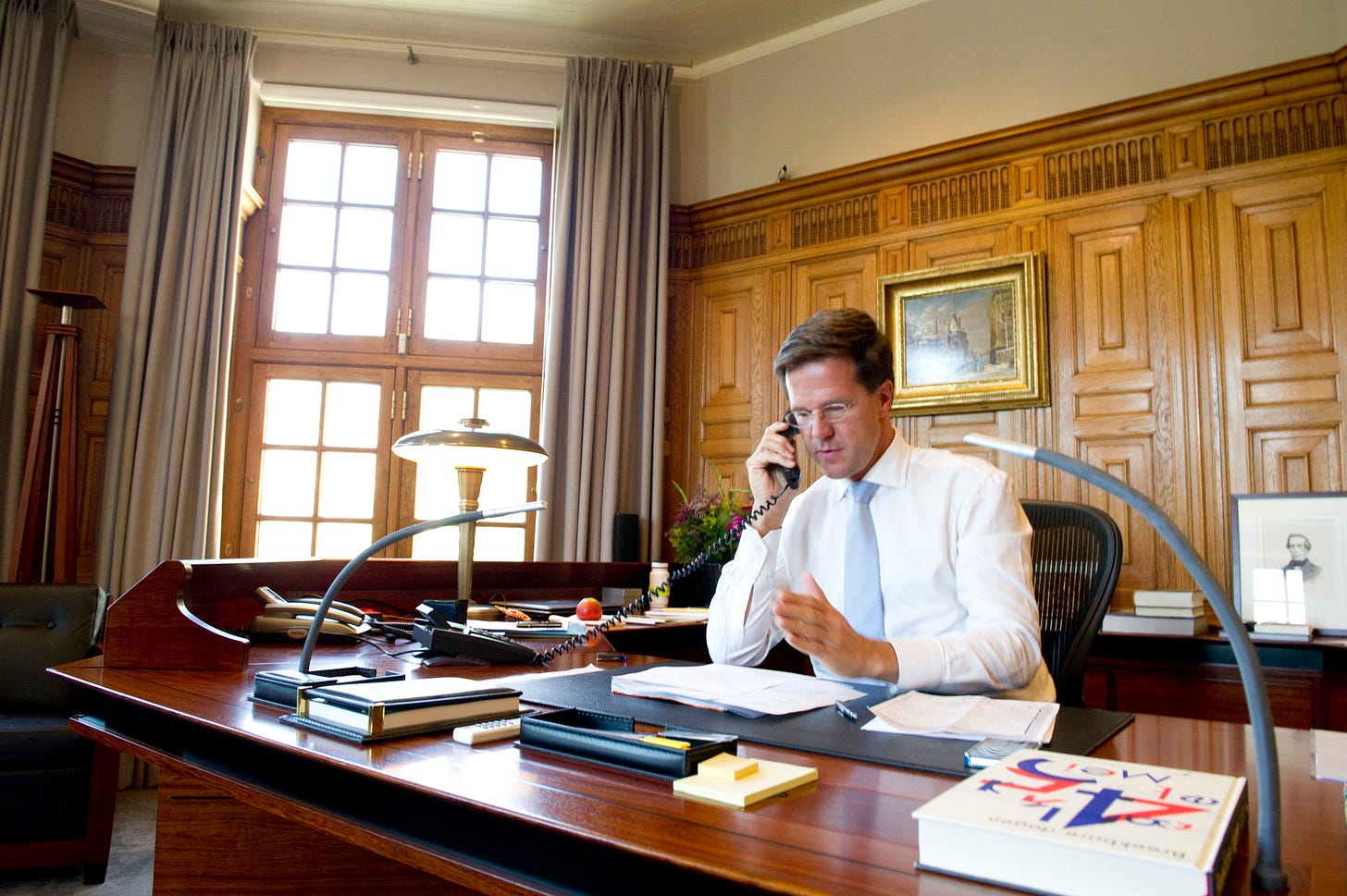🔅 Kenya Airways to investors: Put in your best bid!
Today’s Issue: Liberia's President extended vacay leads to demonstrations, the U.K.'s plan to deport asylum-seekers to Rwanda, and a Dutch apology for the slave trade... ☕
Hey readers — we have a quick request!
It's the most wonderful time of the year, and if you like the work we’ve been doing here, help us spread the word by sharing the gift of Baobab with your friends and colleagues! Before you scroll on down to the news, click the link below, and you're done! 😊 🎄
Photo of the day: Nairobi, Kenya

Markets:
🔻 Nigerian SE: 49,385.90 (-0.06%)
🔻 Johannesburg SE: 73,050.05 (-0.42%)
🔻 Ghana SE: 2,444.88 (-0.20%)
🔻 Nairobi SE: 128.35 (-0.22%)
🔻 US S&P 500: 3,817.66 (-0.90%)
🔻 Shanghai Composite: 3,073.77 (-1.07%)
*Data accurate as of the close of markets across the continent
China is expecting a bumpy ride over the next few months. Although economists expect a post-Covid restrictions boom, the country will first take a hit due to the spread of the virus. And even after the worst has passed, China won’t return to “normal” — things have changed since 2019, and it’ll be a while before we can see the effects of those changes. The most significant shift will likely be how Chinese citizens view their government, especially President Xi Jinping after his unexpected u-turn on Covid restrictions.
Kenya: The IMF has agreed to fork over $447.39 million to Kenya, bringing the total of the loan package to $2.416 billion. The IMF says that Kenya’s public debt has begun to level off due to its fiscal consolidation progress. The East African nation’s economy is expected to expand by 5.3% this year. But, with President William Ruto’s government vowing to cut expensive commercial borrowing, it remains to be seen how much of the loan package will actually be used.
ECONOMY
Kenya Airways to investors: Put in your best bid!
What's the story?
It looks like Kenya is ready to cash out of its national airline.
President William Ruto has been on a trip to the US to shop around the government’s 48.9% stake in Kenya Airways, and he met with Delta Air Lines Inc. executives last week.
Ruto has made it clear he’s not in the business of running a national carrier, so Kenya is hoping to attract a foreign airline with the expertise and deep pockets to make the airline profitable.
Delta has had its eye on Kenya’s air traffic for a while—they tried to launch direct flights between Nairobi and Atlanta back in 2009, but the US Transportation Security Administration nixed it, citing security concerns.
Who owns Kenya Airways?
The government has owned 48.9% since 1995 when they sold 26% to KLM and the rest to local shareholders. KLM has since reduced its stake to 7.76%, and they’ve expressed their desire to exit.
But the pandemic has really taken a toll on Kenya Airways, so the government’s plan to nationalise the airline—which would have seen it delisted from the Nairobi Securities Exchange—was dropped in favour of a new restructuring plan.
Now, the government is looking for a cash-flush partner to get the airline back in the air, and they’re hoping the US-Africa Summit will help them find the right investor.
ACROSS THE CONTINENT
Other Headlines
🇱🇷 Liberia’s President George Weah has returned from overseas travel for a hot minute. Like a seven-week-long hot minute. The president had flown the coop for Morocco, Egypt, France, Qatar, and the US—leaving his citizens back home to protest rising inflation and food prices. Sure, he got to watch his son score a goal at the World Cup in Qatar, but Liberians are pretty sure that Weah’s extended vacay was a bad call. In fact, an opposition leader even joked that the country was running on autopilot. Back home, citizens had plenty to complain about: A staggering 34.6% of Liberians live in extreme poverty, and the government is ranked 136th out of 180 in corruption perceptions. Weah promised to fight poverty and corruption when he came to office in 2018.
🇷🇼🇬🇧 It’s official: The British High Court has green-lit the U.K. government’s plan to deport asylum-seekers to Rwanda. The controversial policy, intended to deter migrants from crossing the English Channel, is now legal—but with one caveat. The government must consider the individual circumstances of each asylum-seeker before deporting them. The court ruled that the plan doesn’t violate the U.N. Refugee Convention or other international agreements. However, it did fault the government for failing to consider each person’s situation. Home Secretary Suella Braverman welcomed the ruling, saying it “thoroughly vindicates the Rwanda partnership.” But opposition politicians and human rights groups have panned the policy, calling it “unworkable, unethical (and) extremely expensive” and warning it will “cause great human suffering.” Rwanda’s opposition lawmakers have also criticised the plan, noting that the East African country is densely populated and has limited resources. This isn’t the first time the U.K. has had to put the brakes on its deportation plans: The first deportation flight was cancelled in June after the European Court of Human Rights ruled the policy posed “a real risk of irreversible harm.”
🇳🇱🌍 On Monday, Dutch Prime Minister Mark Rutte stepped up to the plate to say sorry for his country’s role in the slave trade and slavery. In the same breath, Rutte told reporters he wouldn’t be paying out compensation to descendants of enslaved people. Still, the Dutch government set up a €200 million fund to help tackle the legacy of slavery in the Netherlands and its former colonies. The move follows in the footsteps of other nations, like Denmark, who have also issued apologies for their role in the slave trade. But some Black activists in the Netherlands felt that the government didn’t consult enough with the Black community before the speech and failed to mention reparations.
FOOD FOR THOUGHT
Proverb of the Day
“However far the stream flows, it never forgets its source.”
— Nigerian Proverb.






